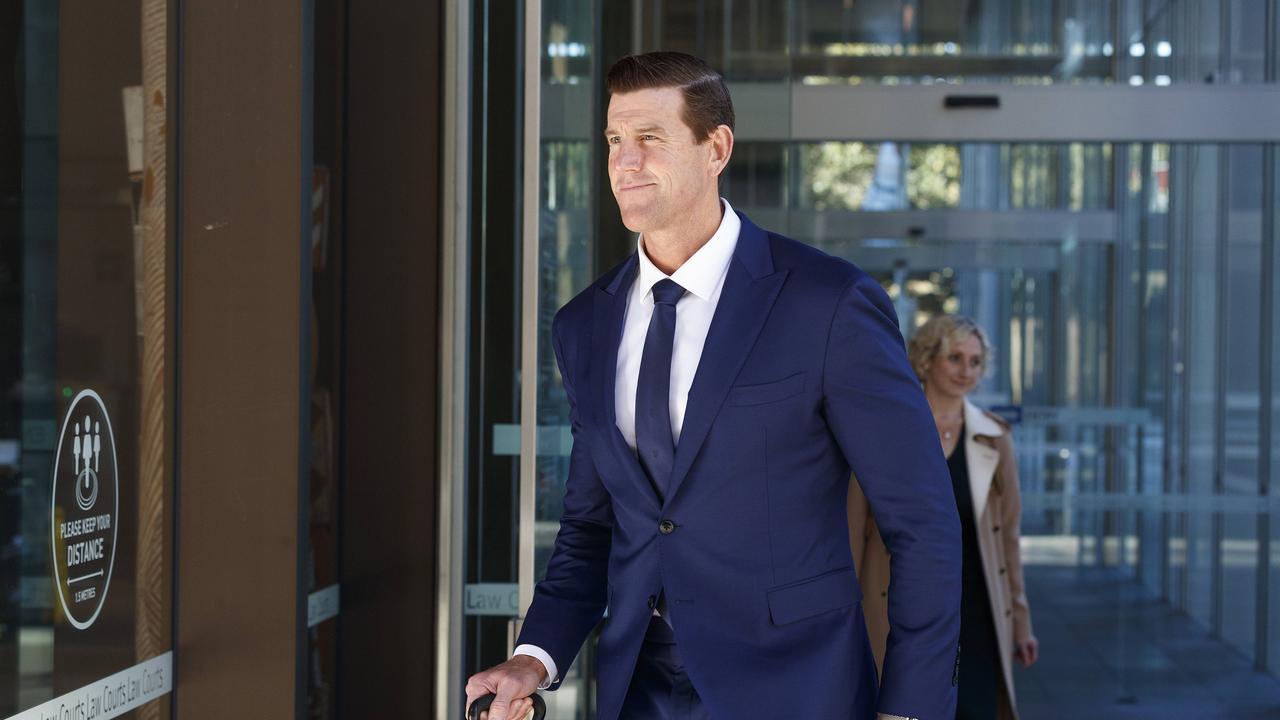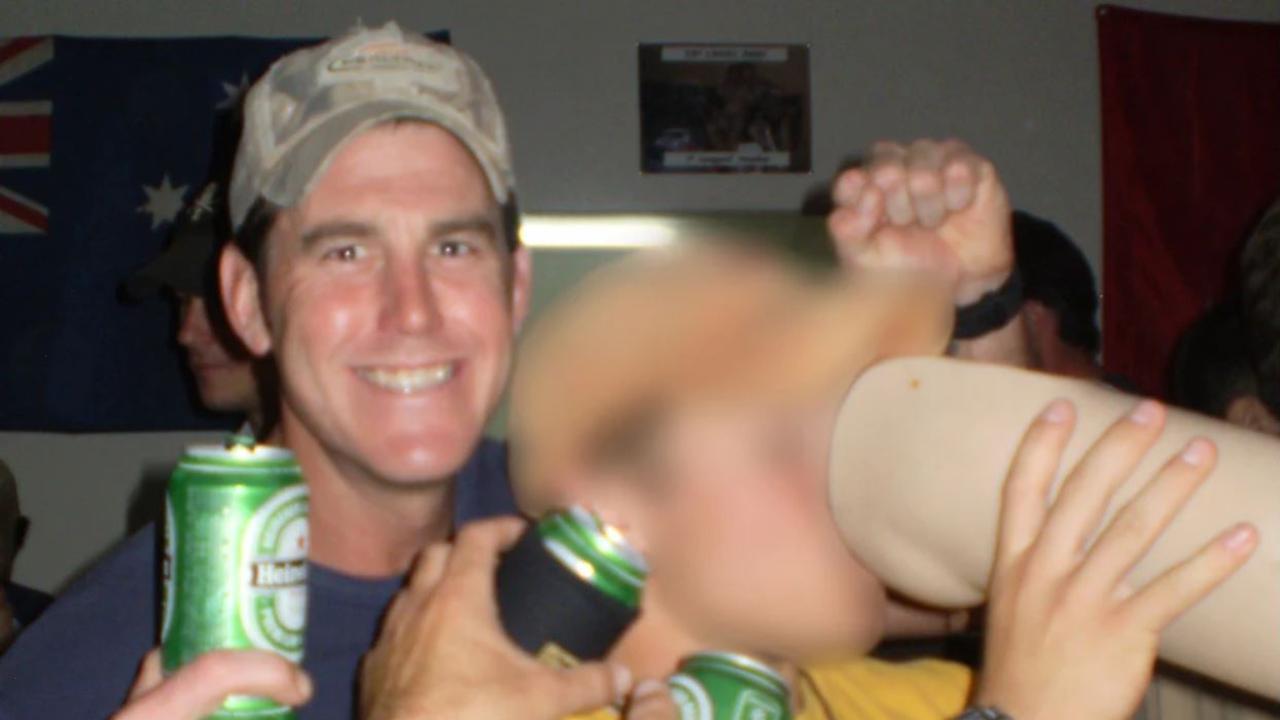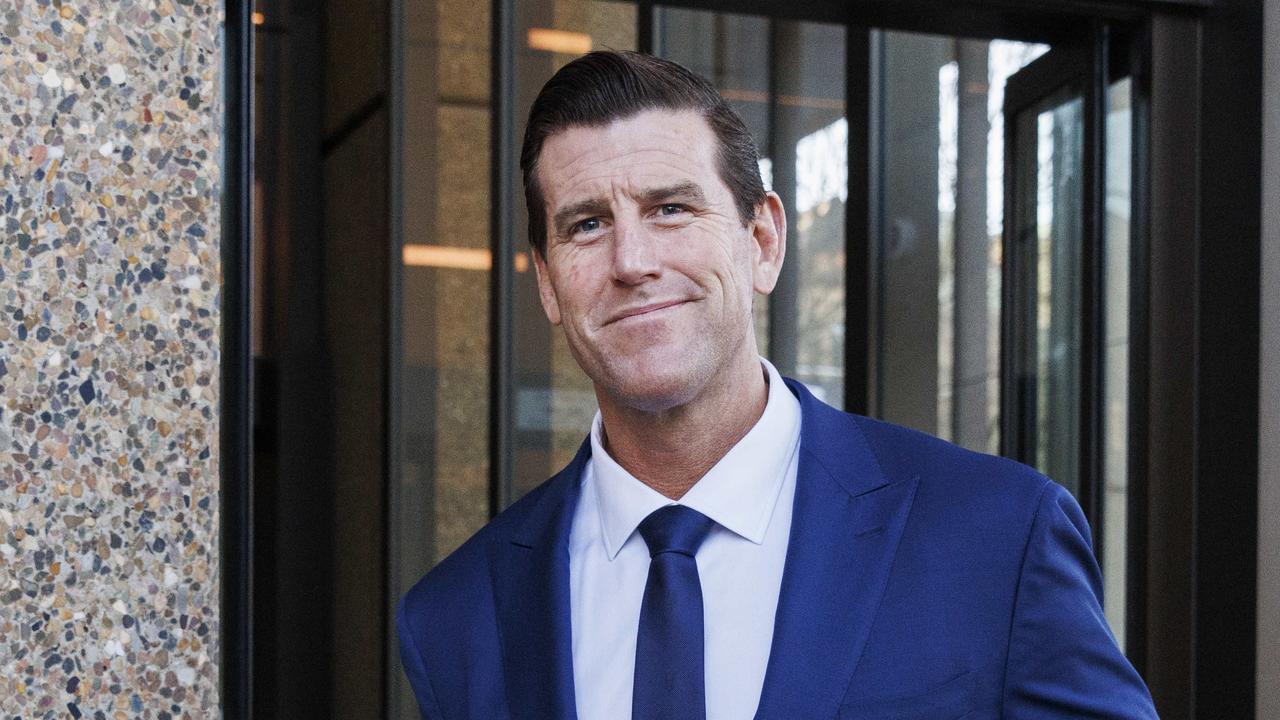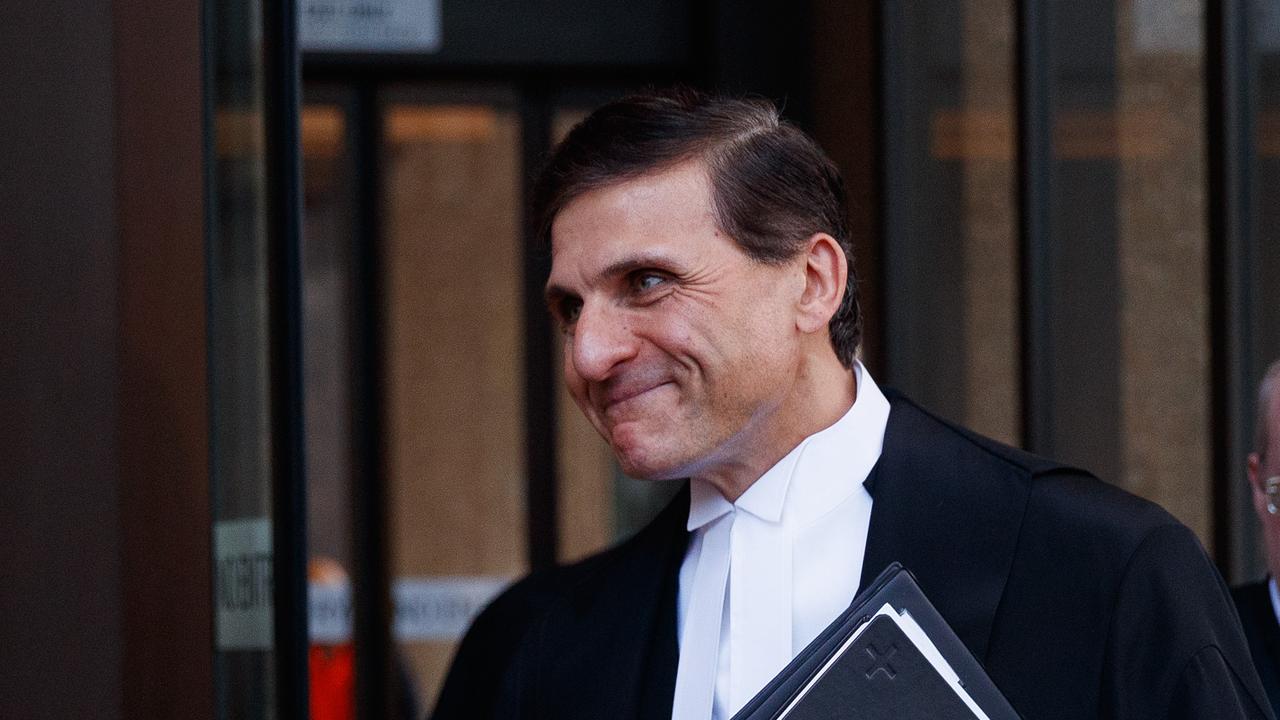Threatening letters sent to a former comrade may have been criminal, Federal Court judge finds
Ben Roberts-Smith may have committed a crime in sending anonymous letters to a former SAS comrade, a judge has found.

War veteran Ben Roberts-Smith may have committed a criminal offence by sending anonymous letters to a former SAS comrade threatening him if he didn’t change his evidence, according to a Federal Court judge.
Justice Anthony Besanko dedicated an entire section of his 736-page judgment on the conduct of the former soldier, which he says revealed a “consciousness of guilt”.
The proceedings, which Mr Roberts-Smith launched in the Federal Court in 2018 against The Sydney Morning Herald, The Age and The Canberra Times, came to an end on Thursday when they were officially dismissed in favour of the newspapers.
Justice Besanko found the newspapers had proven the substantial truth of imputations that he is a war criminal who killed four unarmed Afghan prisoners, assaulted others, and bullied a fellow soldier.
The defamation trial heard Mr Roberts-Smith had attempted to intimidate witnesses so they didn’t give evidence, or to change their version of events entirely.

THREATENING LETTERS
Anonymous letters sent to a comrade, known in the proceedings at Person 18, told him to rescind his evidence to the inspector general of the Defence Force’s inquiry into war crimes.
Or face war crimes allegations of their own, the letter warned.
“You and others have worked together to spread lies and rumours to the media and the IGADF inquiry. You have one chance to save yourself. You must approach the inquiry and admit that you have colluded with others to spread these rumours and lies about certain individuals or you will become their focus,” the letter read, according to the judgment.
“We are very aware of your murderous actions over many tours in Afghanistan and we have specific mission details, dates and witnesses who now are willing to expose you to the authorities so you are criminally investigated.
“Just like when you participated in the execution of 2 PUCs from the Taliban’s makeshift medical compound following the battle in Tizak. You know what you have done and so do we.
“Approach the inquiry and admit to working with others to concoct lies about other SAS members. You have until the end of the month to tell them the truth, and don’t ignore this because it will not go away. You will go down.
“Better to take a reprimand than murder charges.”
The court was told Mr Roberts-Smith organised the letters through his private-eye John McLeod, who gave an explosive testimony during the trial.

Mr McLeod told the court Mr Roberts-Smith asked him to take responsibility for the threats.
“If you’ve done something stupid, put your hand up for it, because the cover-up is 10 times worse than the offence,” Mr McLeod said.
The former soldier’s former wife Emma Roberts, told the court Mr Roberts-Smith admitted to sending the letters.
“I am satisfied on the evidence that the applicant (Mr Roberts-Smith), through Mr McLeod, arranged for two threatening letters to be sent to Person 18,” Justice Besanko found.
“Clearly this conclusion reflects adversely on the credit of the applicant.”
The judge rejected Mr Roberts-Smith’s evidence.
While the letters were not the subject of any imputations, Justice Besanko said it was “serious conduct”, which may constitute a criminal offence.
“MOTIVES TO LIE”
Lawyers on behalf of the newspapers also argued Mr Roberts-Smith “colluded with various witnesses” in an attempt to produce a false account consistent with his side of the story.
Mr Roberts-Smith was also accused of deliberately concealing evidence.
Justice Besanko said the soldier had “motives” to lie, which included a “financial motive to support his claim for damages” and a motive to restore his reputation which he claims was ruined by the articles.

“And, significantly, a motive to resist findings against him which may affect whether further action is taken against him,” the judgment reads.
The judge also found Mr Roberts-Smith paid for the legal fees of his own witnesses, leading Justice Besanko to come to a finding they were not “completely frank and forthcoming”.
He said the decision to pay the witnesses legal fees was because they supported “his version of events” and the witnesses would feel “less inclined to change their mind and refuse to co-operate”.
Justice Besanko revealed the legal fees for Person 11 was approximately $125,000, for Person 5 it came to $65,000 and for person 35 it was $86,000.
“I find that the applicant made the arrangements because he considered that these witnesses, among others, support his version of events,” Justice Besanko said.
LIED ABOUT USBS: JUDGE
Justice Besanko found there were “various acts of concealment” by Mr Roberts-Smith, including hiding a USB which Nine’s lawyers claimed was buried in his backyard.
However, the soldier argued he had kept the USB in the drawer of his desk. Justice Besanko found this to be an outright lie.
The USB contained hundreds of discoverable photographs, videos and other mission-related documents, the judgment said.
Mr Roberts-Smith told the court he had received a number of USBs in the mail during the trial and did not know who sent them to him.
“The applicant said that the USBs primarily contained photographs of SASR operators in Afghanistan and photographs of the Fat Lady’s Arms and a number of parties,” the judgment said.
The former soldier's wife gave evidence during the trial, saying she found several USBs buried in her backyard in one of her daughter’s lunchboxes.
Ms Roberts told the court she dug the lunchbox up with a friend before handing the files to police.
Justice Besanko found the conduct of burying USBs in the garden was consistent with other precautions he had taken, such as using burner phones and encrypted apps.

“At the time he retrieved the USBs, the applicant knew that he was an important subject of the IGADF Inquiry,” the judge found.
“I find that the USBs were buried in the garden of the matrimonial property.”
Justice Besanko said the former soldier knew the documents were relevant to the case and purposely kept them hidden.
“I do not accept the applicant’s case that the failure to discover the USBs was due to inadvertence. The applicant lied about not burying the USBs in the backyard of the matrimonial home,” the judge said.
“He must have known they were relevant.
“He had sworn three affidavits of discovery and each time has not discovered them. I find that he decided not to discover them.”
“WHISPERING CAMPAIGN”
In 2017, Mr Roberts-Smith started believing five witnesses were part of a “whispering campaign in the regiment” which was against him, the judgment said.
“He made efforts to have Special Operations Command investigate who was talking to the media about him,” Justice Besanko said in the judgment.
“He reached the view that the hierarchy of the SASR was ineffective in stopping the whispering campaign against him.”
Mr Roberts-Smith asked Mr McLeod to go to the police regarding a former comrade, Person 6 in the proceedings, and his alleged unlawful ownership of guns.
Justice Besanko found Mr McLeod sent an anonymous email to the Commissioner of the AFP, but Mr Roberts-Smith “denied giving instructions” to the private-eye.
Mr Roberts-Smith later texted his then-wife: “What happened to (Person 6) will scare the others”.
The war veteran’s barrister, Arthur Moses SC, told media outside court he would consider the lengthy judgment ahead of a possible appeal.
Mr Roberts-Smith’s legal team has 42 days to file an appeal.



